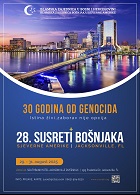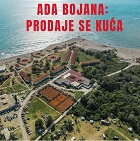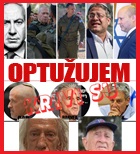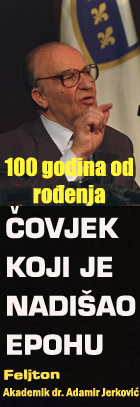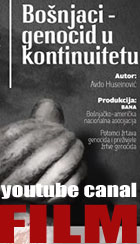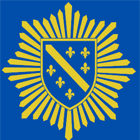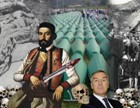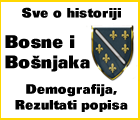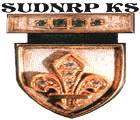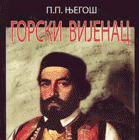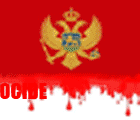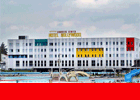
Vijesti
STRANI MEDIJI NA VIJEST O PRESELJENJU NA AHIRET ALIJE IZETBEGOVICA
CNN: EX- BOSNIAN LEADER IZETBEGOVIC DIES
FINACIAL TIMES: IZETBEGOVIC JE BIO DZINOVSKA LICNOST
Turski medije: "Nase dove su sa vama"
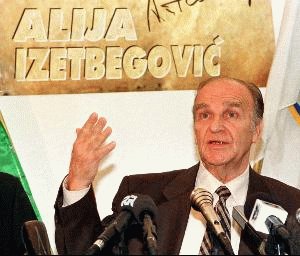 "Nase dove su sa vama....islamski svijet gleda na vas ocima punim suza....Otisao sam dati bosnaskohercegovackom narodu srce kao narodu za koji smo vezani dubokim emocijama, drustvom i bratstvom..." -Izmedju ostalog je izjavio Erdogan.
"Nase dove su sa vama....islamski svijet gleda na vas ocima punim suza....Otisao sam dati bosnaskohercegovackom narodu srce kao narodu za koji smo vezani dubokim emocijama, drustvom i bratstvom..." -Izmedju ostalog je izjavio Erdogan.Financial Times: Izetbegoviæ je bio džinovska liènost
Skoro sva izdanja britanske štampe u ponedjeljak donose nekrologe za bivšeg predsjednika Predsjedništva Bosne i Hercegovine Aliju Izetbegoviæa. Financial Times ga naziva džinovskom liènosti. Independent piše da je on bio simbol meðuetnièke saradnje koji je stekao veæi ugled u ratu nego u miru, pošto nije uspio obuzdati korumpirane elemente u svojoj Stranci demokratske akcije. Visoki predstavnik meðunarodne zajednice Paddy Ashdown mu, pišuæi u Guardianu, pripisuje u zaslugu za opstanak Bosne i Hercegovine. Daily Telegraph piše da je Izetbegoviæ bio duboko religiozan, ali da je usprkos tome shvatio kako je mjesto Bosne i Hercegovine u svjetovnoj Evropi.
Brisel - Solana: “Hrabri lider svoga naroda”
Brojni domaći i strani zvaničnici uputili su telegrame saučešća porodici nekadašnjeg predsjednika Predsjedništva BiH Alije Izetbegovića. Na dženazu u Sarajevu najavljen je dolazak velikog broja državnika. Evropski komesar za vanjsku politiku i sigurnost Havijer Solana za Aliju Izetbegovića kaže da je bio “hrabri lider svoga naroda”. Izetbegović je imao ključnu ulogu u okončanju rata, pripremio je teren z amir I demokratsku izgradnju BIH, smatra havijer Solana.
CNN
Ex-Bosnian leader Izetbegovic dies
Sunday, October 19, 2003 Posted: 10:35 AM EDT (1435 GMT)
SARAJEVO, Bosnia-Herzegovina (AP) -- Alija Izetbegovic, the former Bosnian president who steered Bosnia through independence and the worst bloodshed in Europe since World War II, died Sunday. He was 78.
The former Bosnian leader died of complications that developed after he was hospitalized for injuries sustained from a fall in his home, Dr. Ismet Gavrankapetanovic, the head of Sarajevo's Kosevo clinic, was quoted as saying by state radio.
Izetbegovic's condition had become critical on Friday when doctors could not stop bleeding in his left lung, the hospital reported.
He had been admitted to Sarajevo's main hospital weeks ago after breaking four ribs and injuring his shoulder during a fall at his home. He had been fitted with a pacemaker last year and had suffered two heart attacks in the past.
Reverently called "Dedo" (Grandpa) by his followers, the low-key Izetbegovic was a father figure to many Muslims, particularly those in rural areas who voted overwhelmingly for his Party of Democratic Action in the November 1990 election. The vote brought him to power and helped set the scene for Bosnia's tragic war less than two years later.
Bosnian Serbs, deeply suspicious of his religious background, accused him of trying to establish an Islamic republic in Europe, a cry later taken up by radical Bosnian Croat nationalists and used to fuel ethnic passions that led to what primarily was a war over territory.
While his fight for Bosnian independence enjoyed broad Western support, even some former allies criticized him in later years, suggesting his courting of Islamic countries during the Bosnian war let Muslim radicals gain a toehold in his republic.
Of the three leaders in charge as the Bosnian war broke out, Izetbegovic lasted the longest. Slobodan Milosevic was ousted as Yugoslav president in 2000 and was later extradited to the U.N. war tribunal where he now stands trial for alleged war crimes in Bosnia and elsewhere.
Franjo Tudjman, Croatia's president, died in office in 1999.
After 10 years of leadership, Izetbegovic stepped down from the three-member collective presidency in 2000.
Support from Muslims was key to his political career.
In the run-up to the 1990 elections, Izetbegovic rallied Bosnia's Muslims behind him, convincing them that in talks about the future of Yugoslavia, Milosevic would represent the Serbs and Tudjman the Croats. "And who will speak for you?" asked a pamphlet.
This led to unrivaled authority and influence among Bosnia's Muslims -- 44 percent of the 4.3 million prewar population.
Conjuring up memories of brutal massacres in Yugoslavia's civil war during World War II, Izetbegovic predicted -- wrongly -- in prewar days that fear of a blood bath would prevent his republic's three ethnic groups from going to war again. That led him to dismiss Bosnian Serb threats of war if the republic seceded.
He won a reputation as a moderate by steering multiethnic Bosnia-Herzegovina on a neutral course as the feud between Serbia and Croatia tore the Yugoslav federation apart in 1991.
But after the republics of Slovenia, Croatia and Macedonia had declared independence from the federation, Izetbegovic finally supported the idea of an independent Bosnia.
That infuriated Bosnia's Serbs, who made up one-third of the republic's people and wanted to remain within a Serb-dominated Yugoslavia.
After dominant Muslims and Croats voted for independence February 29, 1992, Serbs began fighting for Bosnian territory.
The ensuing bloodshed engulfed Bosnia, eclipsing neighboring Croatia's war and resulting in an estimated 260,000 people killed or missing and 2.5 million refugees, who fled their homes or were evicted in ethnic purges.
Under pressure from the United States, Izetbegovic and Tudjman signed an agreement for the establishment of a Muslim-Croat federation in Bosnia in March 1994 after the two groups fought bitterly in central and western Bosnia.
Although the federation was dogged by persistent Croat-Muslim enmity and deep mistrust, it proved one of the decisive steps in reaching a peace deal with the Bosnian Serbs.
In July 1995, troops from Croatia joined Izetbegovic's forces in attacks against Bosnian Serb positions. That, coupled with a NATO bombing campaign, finally broke the Bosnian Serbs sufficiently to give Milosevic -- the erstwhile patron of the Serb rebels -- the power to negotiate peace as a way out of a losing war.
Again, U.S. diplomacy played a decisive role in cajoling Izetbegovic to negotiate with Tudjman and Milosevic in closed-door talks in Dayton, Ohio, where they agreed to a peace deal signed in Paris on December 14, 1995, setting up present-day Bosnia -- a Serb republic and a Muslim-Croat federation.
Izetbegovic, his face lined with the years of worry and war, joined his erstwhile foes in signing -- in total silence -- an accord that satisfied none of the three deadly rivals.
Born on August 8, 1925 in Bosanski Samac, Izetbegovic and his family moved to Sarajevo in 1928. He graduated high school in 1943, and studied agriculture for three years.
His bookish manner making him an unlikely warrior, Izetbegovic nonetheless demonstrated steely will long before the start of the Bosnian conflict.
He was sentenced twice for his political views and spent nearly nine years in jails in Communist Yugoslavia -- the state created by Josip Broz Tito. Under the motto "Brotherhood and Unity," Tito and his immediate successors stamped on any expression of nationalism.
After serving three years in prison, he was released in 1949 and earned a law degree from Sarajevo university in 1956, later working as a legal adviser to city transport firms.
In 1983, he was sentenced to 14 years in jail for writing an "Islamic Declaration," but was released in 1988 after his sentence was reduced.
He courted Saudi Arabia and other Muslim nations during the Balkan wars, resulting in financial support for the fledgling Bosnian army in its fight against the Serbs and Croats. Joining his army were hundreds of Islamic warriors from Arab and other Muslim countries.
Shrugging off Western concerns that they could be linked to terrorism, a grateful Izetbegovic permitted some of those fighters to settle in Bosnia after the war, exposing him to growing criticism in the wake of the Sept. 11 terror attacks.
Defiant, he denied wrongdoing. In 2001, he backed the U.S. war against terrorism as "legal, legitimate and necessary," while suggesting that America's Middle East policies might be a motive for anti-U.S. sentiments and acts.
Izetbegovic was treated several time for heart problems. He is survived by his wife, Halida, and three children -- Sabina, mathematician daughter Lejla and architect son Bakir.
http://www.cnn.com/2003/WORLD/europe/10/19/Izetbegovic.bit.ap/index.html
Deutsche Welle
Former Bosnia Muslim leader Izetbegovic dies at 78
The former Bosnian Muslim President, Alija Izetbegovic, died on Sunday aged 78 of heart failure while recovering from four broken ribs in a hospital in Sarajevo. Izetbegovic led the Balkan country through the Bosnian war and was elected its president twice before quitting politics in 2000. Izetbegovic was popular among fellow Muslims and Islamic leaders for resisting Serb attempts to carve up Bosnia after it broke away from the Yugoslav federation in 1992.
http://www.dw-world.de/english/0,3367,1429_W_1003932,00.html
BBC NEWS
Former Bosnian president dies
The former Bosnian President, Alija Izetbegovic, has died aged 78.
Mr Izetbegovic died in hospital on Sunday after becoming ill following a fall at his home in September.
Mr Izetbegovic led Bosnia's Muslims through the country's 1992-95 war.
He went on to serve as the Muslim member of Bosnia Hercegovina's post-war multi-ethnic presidency until 2000, when he stepped down due to ill health.
He is survived by his wife, Halida, and three children - Sabina, Lejla and Bakir.
Father figure
Mr Izetbegovic had a long history of heart disease, and had received treatment in Slovenia and Saudi Arabia.
He had been fitted with a pacemaker last year and had suffered two heart attacks in the past.
-----------------
ALIJA IZETBEGOVIC
Born 1925, Bosanski Samac
Graduated in law from Sarajevo University
Jailed twice under communism for Islamic activism
Elected in 1990 as Bosnian president
Signed the 1995 Dayton accord ending the Bosnian war
Stepped down from presidency in 2000
-----------------
His condition became critical on Friday when doctors could not stop bleeding in his left lung.
Known affectionately as Dedo, or Grandpa, Mr Izetbegovic was a father figure to Bosnia's Muslims.
A trained lawyer, he was jailed for dissidence under the communist regime.
He was elected Bosnian president in 1990 and was immediately faced with the disintegration of Yugoslavia and the subsequent ethnic war.
He came to international attention when he led Bosnia's government from behind sandbagged buildings during the siege of Sarajevo by Serb forces.
But he was criticised for courting support among Muslim nations during former Yugoslavia's bitter conflict and accused of encouraging Islamic radicalism.
Serbs pressed for him to be indicted by the war crimes tribunal at The Hague for alleged atrocities perpetrated by Bosnian Muslim forces.
Story from BBC NEWS:
http://news.bbc.co.uk/go/pr/fr/-/2/hi/europe/3205392.stm
Published: 2003/10/19 14:50:11 GMT
© BBC MM
http://news.bbc.co.uk/2/hi/europe/3205392.stm


